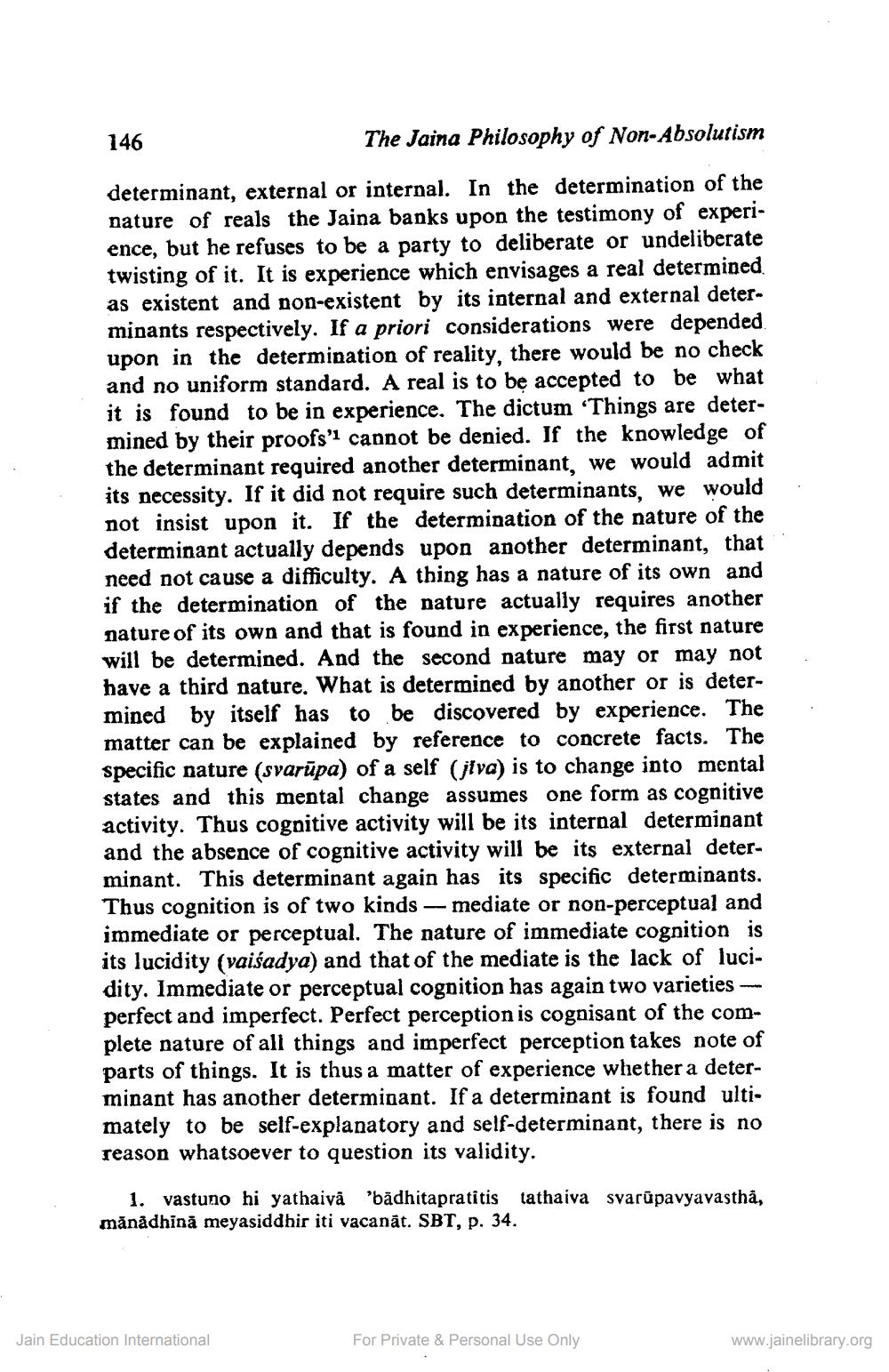________________
146
The Jaina Philosophy of Non-Absolutism
determinant, external or internal. In the determination of the nature of reals the Jaina banks upon the testimony of experience, but he refuses to be a party to deliberate or undeliberate twisting of it. It is experience which envisages a real determined as existent and non-existent by its internal and external determinants respectively. If a priori considerations were depended upon in the determination of reality, there would be no check and no uniform standard. A real is to be accepted to be what it is found to be in experience. The dictum 'Things are determined by their proofs'ı cannot be denied. If the knowledge of the determinant required another determinant, we would admit its necessity. If it did not require such determinants, we would not insist upon it. If the determination of the nature of the determinant actually depends upon another determinant, that need not cause a difficulty. A thing has a nature of its own and if the determination of the nature actually requires another nature of its own and that is found in experience, the first nature will be determined. And the second nature may or may not have a third nature. What is determined by another or is determined by itself has to be discovered by experience. The matter can be explained by reference to concrete facts. The specific nature (svarūpa) of a self (jiva) is to change into mental states and this mental change assumes one form as cognitive activity. Thus cognitive activity will be its internal determinant and the absence of cognitive activity will be its external determinant. This determinant again has its specific determinants. Thus cognition is of two kinds - mediate or non-perceptual and immediate or perceptual. The nature of immediate cognition is its lucidity (vaiśadya) and that of the mediate is the lack of luci dity. Immediate or perceptual cognition has again two varieties - perfect and imperfect. Perfect perception is cognisant of the complete nature of all things and imperfect perception takes note of parts of things. It is thus a matter of experience whether a determinant has another determinant. If a determinant is found ultimately to be self-explanatory and self-determinant, there is no reason whatsoever to question its validity.
1. vastuno hi yathaiyã 'badhitapratitis tathaiva svarūpavyavastha, mănădhină meyasiddhir iti vacanåt. SBT, p. 34.
Jain Education International
For Private & Personal Use Only
www.jainelibrary.org




